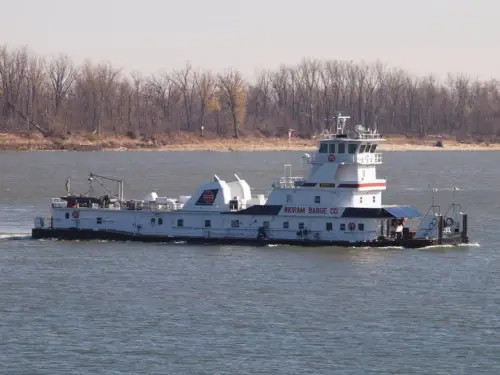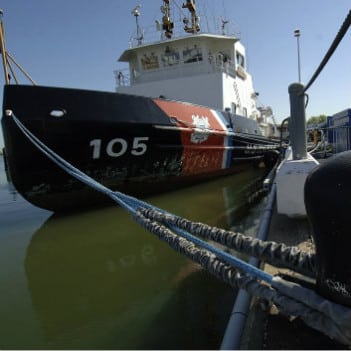After suffering a maritime injury in Ohio, you may be struggling with several questions:
You can learn more about your rights after an Ohio maritime injury in a free legal consultation.
With shores on Lake Erie and numerous rivers throughout the state, Ohio is a key location for marine cargo transportation in the Midwest and Great Lakes region. Throughout the state, tens of thousands of residents work together in these maritime settings to keep Ohio’s economic engine running. In the process, they’re able to provide a comfortable life for themselves and their families.
However, maritime work also has its fair share of risks. These employees are exposed to some inherent hazards on the job, but many offshore and maritime work injuries could have been prevented if it weren’t for the negligence of another party. If you’ve been injured while working as a seaman or crew member of a vessel, you’re entitled to seek damages for such negligence under the Jones Act.
Contact our offshore accident attorneys to learn more.

After suffering a maritime or offshore injury, financial compensation is generally available under one of two maritime laws:
Maritime workers may recover financial compensation under the Jones Act if they meet the law’s definition of a “seaman”. This generally applies to anyone who spends at least 30% of their work time contributing to the function of an eligible vessel on navigable waters.
In any Jones Act claim, eligible workers can recover no-fault maintenance and cure benefits. These benefits provide financial compensation for necessary living expenses (like rent/mortgage, utility bills, food, etc.) and medical bills up until the point where the injured worker has reached full medical recovery.
Jones Act workers can also seek additional compensation if some form of negligence played a role in their injury or if their work vessel is determined to be unseaworthy. Anytime an employer fails to keep their work environment safe for their employees, he or she may be considered negligent and held liable for damages. When a vessel contains a defective or dangerous condition, the vessel owner may also be held liable for damages related to the injury.
Maritime workers who do not meet the Jones Act definition of a seaman may instead seek compensation under the Longshore and Harbor Workers’ Compensation Act. This Act provides benefits for expenses related to an injury, including:
Unlike a Jones Act claim, the LHWCA does not consider negligence. This is a no-fault form of insurance, similar to a state-level workers’ compensation claim but made at the federal level. However, recovering compensation under the LHWCA involves the complexities of maritime law and greatly differs from a state-level claim.
Ohio has a total of 10 ports, which vary in size and function. Some of the most important ports in Ohio include:
Located on Lake Erie at the mouth of the Cuyahoga River, the Port of Cleveland is the third-largest port on the Great Lakes. This port handles an average of 13 million tons of cargo each year, including steel, wind, and turbine components as well as various other bulk products. About 17,800 jobs are either directly or indirectly related to port functions, with over $1 billion in personal income generated through these jobs.
Also located on Lake Erie, but at the mouth of the Black River, the Port of Lorain is a central shipping center for the Midwest. Top cargoes that move through this port include iron ore, coal, limestone, gravel, sand, and stone.
The Port of Toledo is one of the most important seaports on the Great Lakes, and also the largest one by area. It functions as an inland distribution center and has trade partners in Mexico, Canada, Europe, Russia, and Asia. This port has facilities capable of handling all types of cargo, including bulk, break-bulk, containers, and project cargo. The Port of Toledo is responsible for nearly 7,000 direct, indirect, and induced jobs – including over 2,500 which are directly involved with marine cargo and vessel activity.
If you or a loved one has recently suffered a serious maritime or offshore injury in Ohio, it’s important to be aware of your right to financial compensation. However, determining which maritime law applies to you and actually receiving the compensation you deserve can be difficult. Maritime law is a complex and highly specialized field, and you’ll be going up against powerful insurance companies with teams of skilled lawyers. In order to give yourself a fair chance in court, it’s usually necessary to have your own experienced maritime lawyer who understands how these claims work.
You can find out more about your options without a commitment by speaking with a lawyer in a free consultation. Additionally, our maritime lawyers work on contingency fees, which means you pay nothing unless you win.
See Related Reading: Financial Compensation For Michigan Maritime and Offshore Injuries


 info@legalherald.com
info@legalherald.com